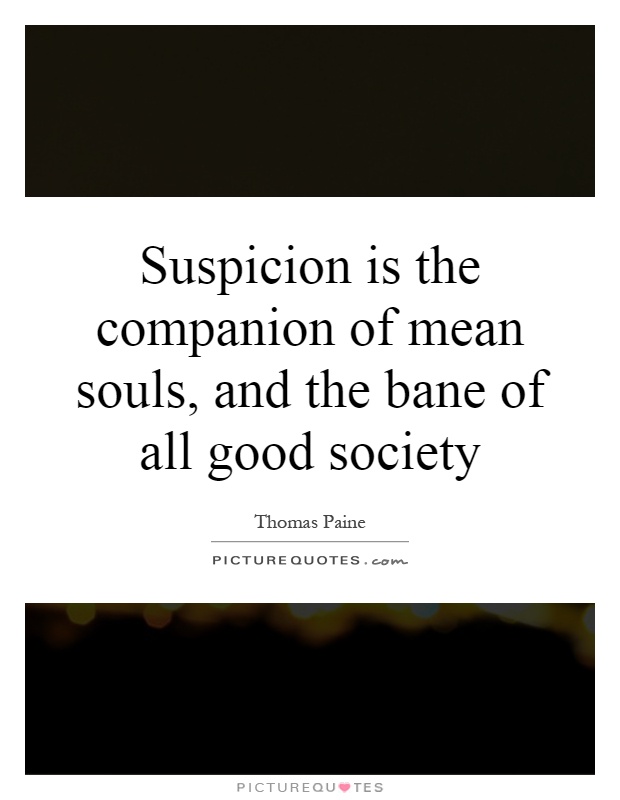Suspicion is the companion of mean souls, and the bane of all good society

Suspicion is the companion of mean souls, and the bane of all good society
Thomas Paine, a prominent figure in the American Revolution and a fervent advocate for democracy and human rights, understood the destructive nature of suspicion in society. In his writings, Paine often emphasized the importance of trust and unity among individuals in order to create a just and prosperous society. He believed that suspicion was not only detrimental to personal relationships but also to the overall well-being of a community.Paine's quote, "Suspicion is the companion of mean souls, and the bane of all good society," reflects his belief that suspicion is a toxic force that undermines the foundations of a healthy and harmonious society. He understood that suspicion breeds mistrust, fear, and division among people, leading to conflict and discord. In a society where suspicion prevails, individuals are unable to form genuine connections with one another, and cooperation becomes difficult if not impossible.
Paine recognized that suspicion often arises from insecurity, jealousy, and a lack of empathy. Mean-spirited individuals who harbor suspicions about others are often driven by their own insecurities and prejudices. They project their negative feelings onto others, creating a toxic environment where trust is eroded and relationships are strained. Paine believed that such individuals were incapable of fostering a sense of community and solidarity, as their suspicious nature prevented them from seeing the good in others.
In contrast, Paine valued trust, openness, and mutual respect as essential components of a healthy society. He believed that when individuals are able to trust one another and work together towards common goals, they can achieve great things and create a better world for all. Paine's vision of a just and equitable society was built on the foundation of trust and cooperation, where suspicion had no place.












 Friendship Quotes
Friendship Quotes Love Quotes
Love Quotes Life Quotes
Life Quotes Funny Quotes
Funny Quotes Motivational Quotes
Motivational Quotes Inspirational Quotes
Inspirational Quotes